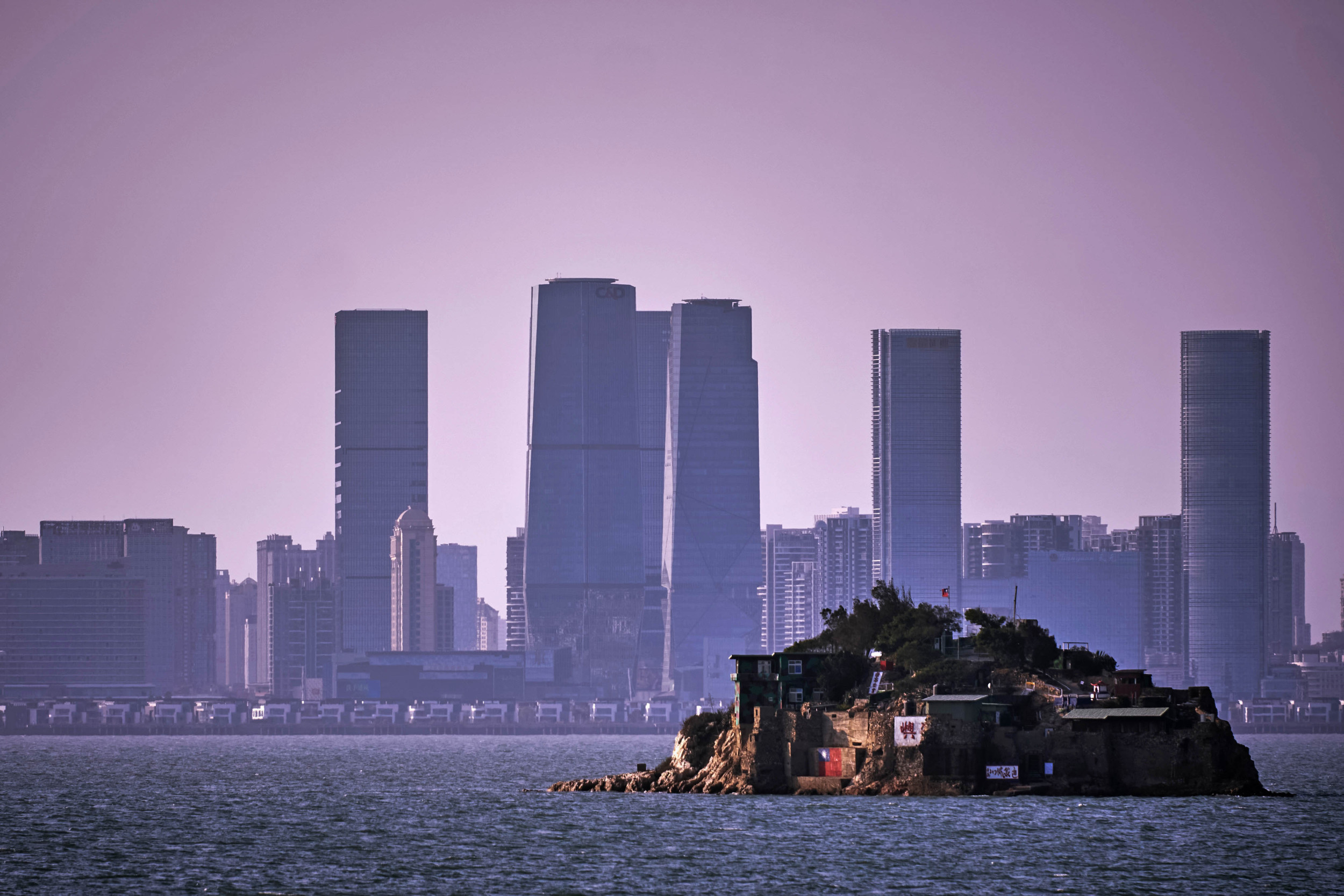[[“value”:”
A map shows where the Chinese coast guard recently entered Taiwan-claimed waters in what one international relations expert says is a territorial flex meant to be lower risk but that could trigger conflict if Taipei feels its hand is forced.
“As the coast guard operates as a law enforcement entity, its deployment not only reduces the likelihood and severity of conflicts but also tends to garner less international backlash,” Tzu-chieh Hung, associate research fellow at Taiwan think tank the Institute for National Defense and Security Research, told Newsweek.
The intrusions happened around Taiwan’s outlying island county of Kinmen, which lies in the Taiwan Strait. The county is at some points just over a mile from Chinese shores.
Kinmen has been at the center of controversy recently after several high-profile episodes stoked cross-strait tensions between China and self-ruled Taiwan, which Beijing considers a rogue province and has vowed to annex—by force if necessary.
Last weekend, a total of four Chinese coast guard patrol vessels entered restricted waters off Kinmen, according to Taiwan’s coast guard.
China said its vessels were simply carrying out “law enforcement inspections in accordance with the law.”
“China’s preference for deploying the China Coast Guard carries several significant implications,” Hung said. “Firstly, compared to the People’s Liberation Army, the deployment of the CCG is less sensitive and carries less overt military connotations.”
However, he said these patrols by the Chinese Coast Guard amount to an “exercise of sovereignty” and are meant to press home Beijing’s claims over an area it views as its own.
While coast guard ships are viewed as less threatening than their naval counterparts, these patrols could still risk leading Taiwanese authorities into feeling forced to take action.
“Despite the relatively lower military sensitivity of routine coast guard patrols, given the close proximity of Kinmen and China, Taiwan has little room for concessions, especially if the Chinese coast guard were to regularly cross into prohibited waters near Kinmen while Taiwan adheres to standard operating procedures for necessary expulsions,” Hung said.
“The likelihood of future conflicts and accidents between the two sides could significantly increase.” he added.
Newsweek has reached out to the Chinese foreign ministry with a written request for comment.
The Chinese city of Xiamen is seen, with the islet of Lieyu, an outlying island of Kinmen, in the foreground, on February 4, 2021. Cross-strait tensions have flared over Kinmen, the closest point between Taiwan…
The Chinese city of Xiamen is seen, with the islet of Lieyu, an outlying island of Kinmen, in the foreground, on February 4, 2021. Cross-strait tensions have flared over Kinmen, the closest point between Taiwan and China, since a pair of Chinese fishermen died during an attempted escape from the Taiwanese coast guard.
An Rong Shu/Getty Images
The latest controversy over Kinmen began last month after a speed boat capsized while being pursued by the Taiwan Coast Guard for illegally entering Taiwanese waters. The incident resulted in the deaths of two Chinese fishermen.
China blasted its neighbor for using “various excuses to forcefully seize mainland fishing boats and treat mainland fishermen in a rough and dangerous way.”
Then, just days later, the Chinese coast guard boarded a Taiwanese tour boat for half an hour after it passed near Chinese waters, drawing a protest from Taipei.
However, Sunday saw an example of successful collaboration between the uneasy neighbors after a motorboat carrying two Kinmen-based fishermen ran out of gas and was left adrift.
Taiwan’s coast guard contacted their Chinese counterparts to ask for assistance, and a search-and-rescue team based out of Xiamen eventually rescued the pair, according to Taiwan’s United Daily News.
Newsweek is committed to challenging conventional wisdom and finding connections in the search for common ground.
“]]



